1. It is not the concern of the scientist how their inventions/discoveries are used so long as he defines how they SHOULD be used.
1.1. HaoYu- What about inventions such as weapon of mass destruction? The scientist may say that they are invented to serve as deterrence against foreign attack. But there are terrorist out there using it to destroy people's life. In this case, should the scientist care or let this sort of technology progress at an exponentially?
2. For example, in 2007, many heroine addicts in Singapore turned to a drug called 'Subutex', thinking that it is less harmful and hence, will help them to overcome their addiction for the more harmful drugs like heroin. However, due to a lack of knowledge, the drug also caused several deaths and amputations.
2.1. Therefore, the scientists could hold a public forum to inform the public about the pros and cons of their inventions and discoveries as they know best about the consequences of the way their product is used.
2.1.1. Yes! Provided the scientists are aware of the consequences of such use. If they are, they would have warned the public, surely? That they did not suggest they did not know.
2.2. 'inventions and discoveries'
3. Another example would be the Atomic Bomb designed by the theories discovered by Albert Einstein. Albert Einstein did not want it to be a weapon of mass destruction but a source of energy.
3.1. CON: It is their responsibility to ensure that the inventions and discoveries can be used to benefit the society
3.1.1. Scientists are supposed to create and discover items that will be advantageous to the society. Hence they should come up with measures to stop people from misuse lest it defeats the purpose of the invention/discovery
3.2. Example: Alfred Nobel invented dynamite as a building material (for blasting tunnels and such). Instead, our military history has shown how dynamite is more often used as a weapon of war and of terrorism: everything from minefields to grenades to suicide bombers.
4. From this we can say its is the incumbent. That inventions and discoveries will be left to the mercy of the public's creativity and rich people that fund it to determine how they ill be used
5. Con: No, the scientist merely do the work while the use and intellectual property of their inventions belong to the companies that fund them. Unless it is self-funded. But even though so, the scientists cannot limit the creativity of the general public once he sells and commercialise his products.
5.1. An example would be the invention of Dynamite by Alfred Nobel as a safer way to clear mountains than simply using black powder. But dynamite was later used by the military as bombs to kill people. Although he regretted inventing it later on.
6. PRO: Inventions and discoveries are created for a main purpose. If you care too much about how an invention is used, you hinder its progress
6.1. Example: GM food was created so as to increase crop yield and quality of foods. It could have saved a lot of lives but it's use is being limited because of people's concerns. Hence till today, the true potential of GM food is not uncovered
7. New node
8. CON: Quite often, the inventions and discoveries are misused not with the intention of misusing them, but due to a lack of full knowledge about the product.
9. http://www.macrumors.com/2012/02/16/apple-wins-german-injunction-against-motorola-over-swipe-to-unlock-patents/
10. CON: How the inventions and discoveries are put to use will affect the mankind as a whole and hence, the scientists as well. It is thus, everyone's concern about how they are put to use. And if the scientists have the power to control how they are put to use, they should definitely use it
10.1. Therefore, as a suggestion, the scientists must be given rights to limit the use of their inventions as they will be able to predict the negative consequences of the misuse of their inventions.
10.1.1. Hao Yu- What about the patents of this invention? This is definitely a right the scientist have to limit the use of their inventions,
10.1.1.1. Patents will only show ownership of rights and who companies should pay for the use. It does not truly stop how the invention is used
10.1.1.1.1. Haoyu- But by paying for the use, aren't the companies suppose to be following the guidelines that are set by the scientist?
10.1.2. Easier said than done. How does one control use? Also, consider that limiting the use will decrease the development, eg other scientists may be able to make use of whatever development to improve on it
11. CON: Scientists are actually concerned about the uses of their discoveries in the name of profits.
11.1. In the modern world, scientists fight hard to prevent unauthorized usage of their patented discoveries.
11.2. Example: Samsung, Apple, HTC and Motorola are all embroiled in a massive legal battle over the patents used in their mobile devices.
11.2.1. Isn't this example illustrating how companies, who are the ones advertising the products, are concerned about the profits, and not the scientists?
12. Concern: To be held responsible for, to be related or be of interest of
13. PRO: Responsibility should be in the hands of those embracing the discoveries, not those who create them.
13.1. A car manufacturer cannot be blamed if the car is used as a getaway van.
13.1.1. HaoYu- Is there any concrete explanation for this point? This 2 points are just examples!!!
